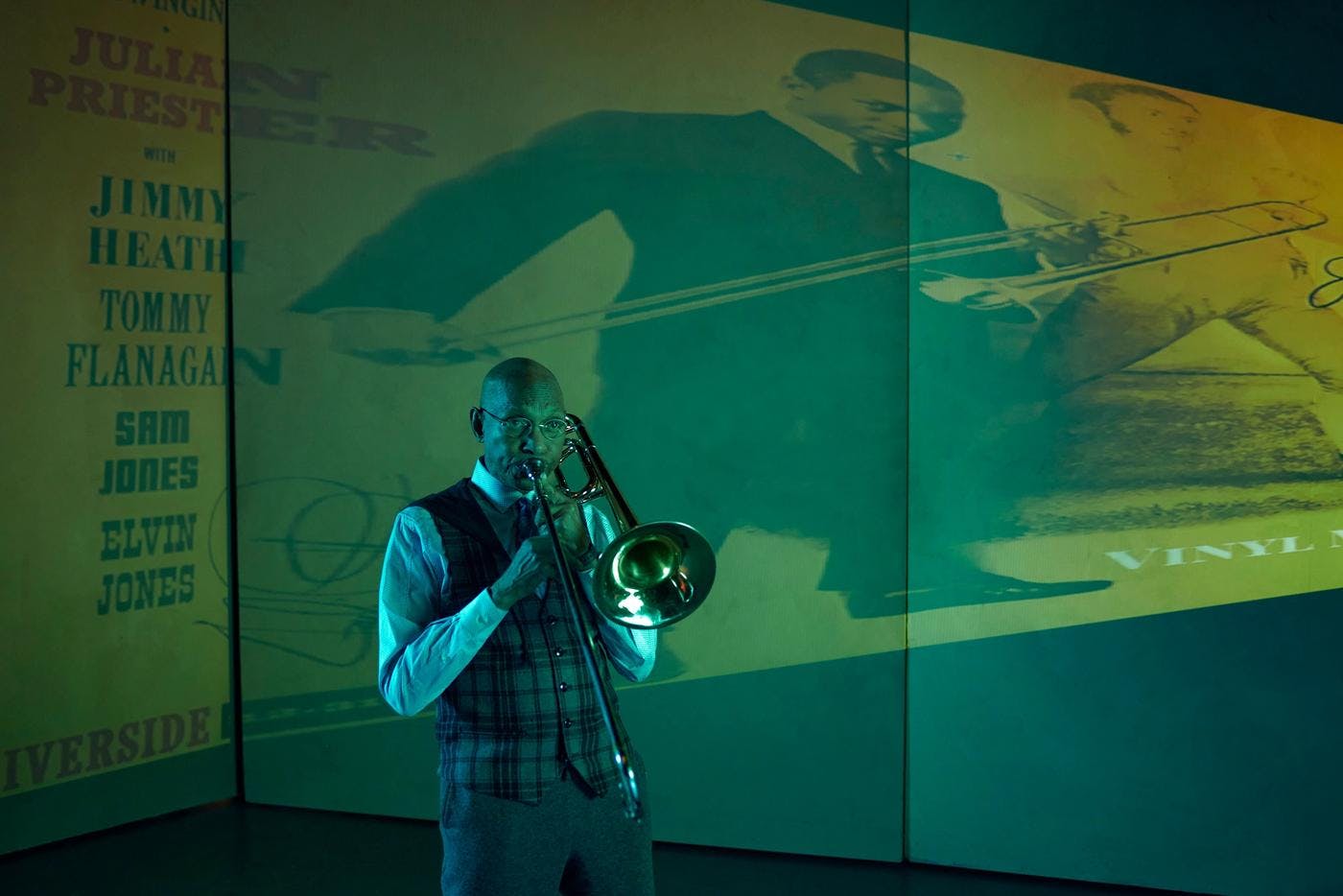
Julian Priester
A fount of knowledge for the jazz community, the trombonist and living legend is shaping the next generation of Seattle musicians.
A pivotal figure in Seattle’s proto-grunge scene, the Bam Bam singer has been long-overlooked. Now, rock history is being rewritten.
by Meshell Sturgis and Jasmine Mahmoud / June 1, 2022
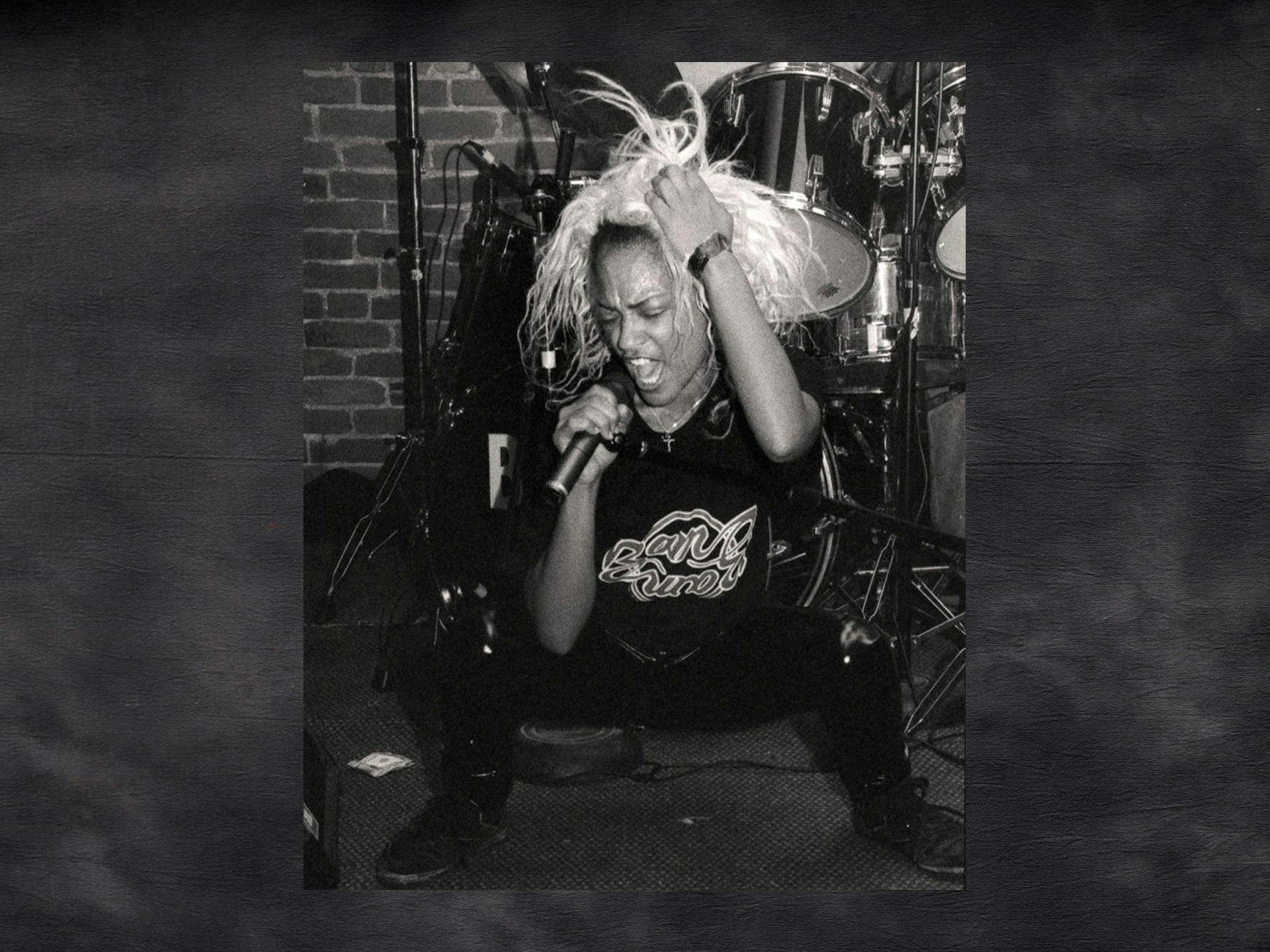
The 1984 music video for “Ground Zero,” by Seattle rock band Bam Bam, kicks off with a grinding guitar riff and a backdrop of fast-motion clouds. The camera pulls back, and a four-person band comes into view. Performing this doomsday song about a “final destroyer” is frontwoman Tina Bell, sporting a white motorcycle jacket and a pixie cut. “Three miles from ground zero / waitin’ for the sun / still hasn’t shown,” Bell sings in her alto voice, which alternately dives, soars and pulses with tremolo.
The video continues with external shots of the band — Bell’s husband, Tommy Martin, on guitar, Scotty Ledgerwood on bass and Tom Hendrickson on drums — at the beach and on the docks of Seattle’s waterfront. It’s a low-fi recording but Bell’s ultracool performance feels iconic, as she subtly leans into the beat.
Atmospherically, the music has all the harbingers of grunge — gnarly chords, surprising bursts of sweetness, apocalyptic themes. But until recently, Bell barely registered in the official history of Seattle rock. Which makes the themes of “Ground Zero” genuinely foreboding given her lack of recognition and early death.
For band member Ledgerwood — and many fans of Bam Bam, which was active from 1983 through the early 1990s — Bell was “pure focus,” with a magnetic stage presence and fierce delivery. “Her range was just phenomenal,” Ledgerwood notes. “She could go from a sexy little coo to this absolutely spine shrieking” sound. He attributes her vocal range to her upbringing in the church that spawned so many Northwest musicians.
Born in Seattle, Bell was one of 10 children and grew up singing in the Mount Zion Baptist Church choir. After attending Franklin High School, where she participated in cheerleading and theater, Bell briefly enrolled at Washington State University to study English and dramatic literature.
In the 1970s, Bell met Martin via a newspaper ad. She had been looking for a French tutor to help her sing Eartha Kitt’s rendition of “C’est Si Bon” for a production at the Langston Hughes Performing Arts Institute, and Martin fit the bill. They fell in love, got married, had their son, TJ, in 1979, and in 1983, they formed Bam Bam, an acronym that combined “Bell And Martin.”
Ledgerwood met Martin through an ad in The Rocket and became the band’s bassist; soon after, Bam Bam poached Matt Cameron (Bam Bam’s first drummer, who went on to help form Soundgarden) from the Mercenaries, a cover band. Punk energy undergirded Bam Bam’s songs — all co-written by band members — which explored everything from partying to feminism to daily hardships.
In “Stress,” Bell shout-sings “Been stripped of my keys / I ain’t got no job. / Back at the crib the baby’s cryin’.” In the fast-driving “Heinz 57,” she screams, “Treachery!! Seek it out. Treachery, I'm freaking out.”
“We were the potpourri of debris,” Ledgerwood jokes, regarding the band’s influences. “Everything from Frank Sinatra to The Doors, Aretha Franklin, Patti Smith, Metallica, Dead Kennedys, X Ray Specs, Johnny Cash — Johnny Cash and Aretha Franklin were worshiped by the band.” Their range converged with, as Ledgerwood recalls, “an early ’80s Seattle scene [that] was extremely open-minded.”
In 1984, Bam Bam released its first EP, Villains (Also Wear White), an independent album recorded at Reciprocal Recordings, where Nirvana later recorded demos. In the titular song, Bell sings: “Bad guy portrayed in black; show another side. / Victim of some rude act, got no place to hide. / Villains also wear white.” One interpretation: a metaphor for racism, which Bell endured across her career — including an altercation with skinheads that Ledgerwood recalls happening at The Metropolis.
Bam Bam performed on stages across the city — including the Weathered Wall and the Off Ramp — and along the West Coast. Kurt Cobain allegedly served as roadie for the band for a time. So why didn’t Bell get the attention and acclaim of other proto-grunge bands in Seattle?
“Proper erasure” is how TJ Martin explains it. The Seattle-born son of Bell and Martin, he’s now an Oscar and Emmy award-winning director. He notes that one grunge history book (Everybody Loves Our Town) even described Bam Bam “as a three piece instrumental.” “So it literally erased my mom's presence and contributions to her own band, and the scene itself,” he says. “It chips away if you have to always look over your shoulder in a space that's supposed to be about freedom of expression.”
Despite dealing with the adversity that comes with being a Black woman in a predominantly white male art form — and in contrast to her rough-and-ready stage presence — Bell is universally described as uniquely warm, genuine and beloved. “For the most part, people adored her,” Ledgerwood says of her fans and friends. “I think the racism and misogyny went further up the ladder, to those who would do the signing of the band for a label.”
Bam Bam toured Europe in the late 1980s, but after returning to Seattle a few years later, Bell and Martin broke up as a couple as well as a band. Bell seemed to give up on her rock ambitions altogether, moving to Las Vegas, holing up in a studio apartment and connecting with spirituality. “She retreated from music, but then she retreated from the world as well,” her son says.
At some point while Bell was in Las Vegas, she and Ledgerwood reconnected and wrote lyrics together. But in 2012, Bell died at age 55 of cirrhosis of the liver. Her body was discovered weeks after her passing; Martin says that when he arrived, almost all of her belongings had already been discarded. In a 2021 KEXP podcast in which DJ Larry Mizell Jr. explored Bell’s life, Martin says, “She continued to get disrespected even in death.”
But starting in 2021, Bell began to get posthumous attention. CBS News produced a short documentary about her impact. Leading up to the doc, Om Johari, the Seattle singer for Re-Ignition and other rock bands, organized a tribute concert at the Central Saloon, where Bam Bam once performed. In the documentary, Johari recalls how as a teen she sneaked out to see Bam Bam and was bowled over by how Bell “commanded a room of predominantly white spectators.” At the full-throated event, Matt Cameron returned, as did Scotty Ledgerwood, joined by Black women rockers, including Eva Walker of the Black Tones.
“Tina's legacy has been already answered with great groups like the Black Tones,” Ledgerwood said. “Her legacy is living on, and it warms my own heart to see these people who look to her as the inspiration.” In May 2022, Bric-a-Brac Records re-released the 1984 EP Villains (Also Wear White).
Bell’s legacy comes from her pioneering a sound from an authentic place. “She was one of the founding creators of that sound, and she brought an element to Seattle sound that no white man ever could,” Ledgerwood says. “You're talking angst? Hello, whoa. She was the real deal.” As TJ Martin put it in the KEXP podcast, “My mom [was] actually living the emotions that they [were] performing.”
Martin defines his mother’s legacy as transcending her circumstances. “She found … a musical style that she really felt was an accurate expression of herself,” he tells Crosscut. “And she pursued it, regardless of what the social circumstances [dictated].... There’s nothing more punk rock than doing what feels right to you. She did exactly that. She carved out a space for herself, against all expectations.”
Black Arts Legacies Research Assistant
Black Arts Legacies Project Editor
ARTIST OVERVIEW
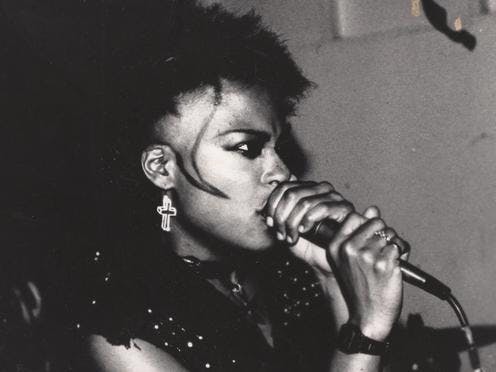
Singer, Musician
(1957-2012)

A fount of knowledge for the jazz community, the trombonist and living legend is shaping the next generation of Seattle musicians.
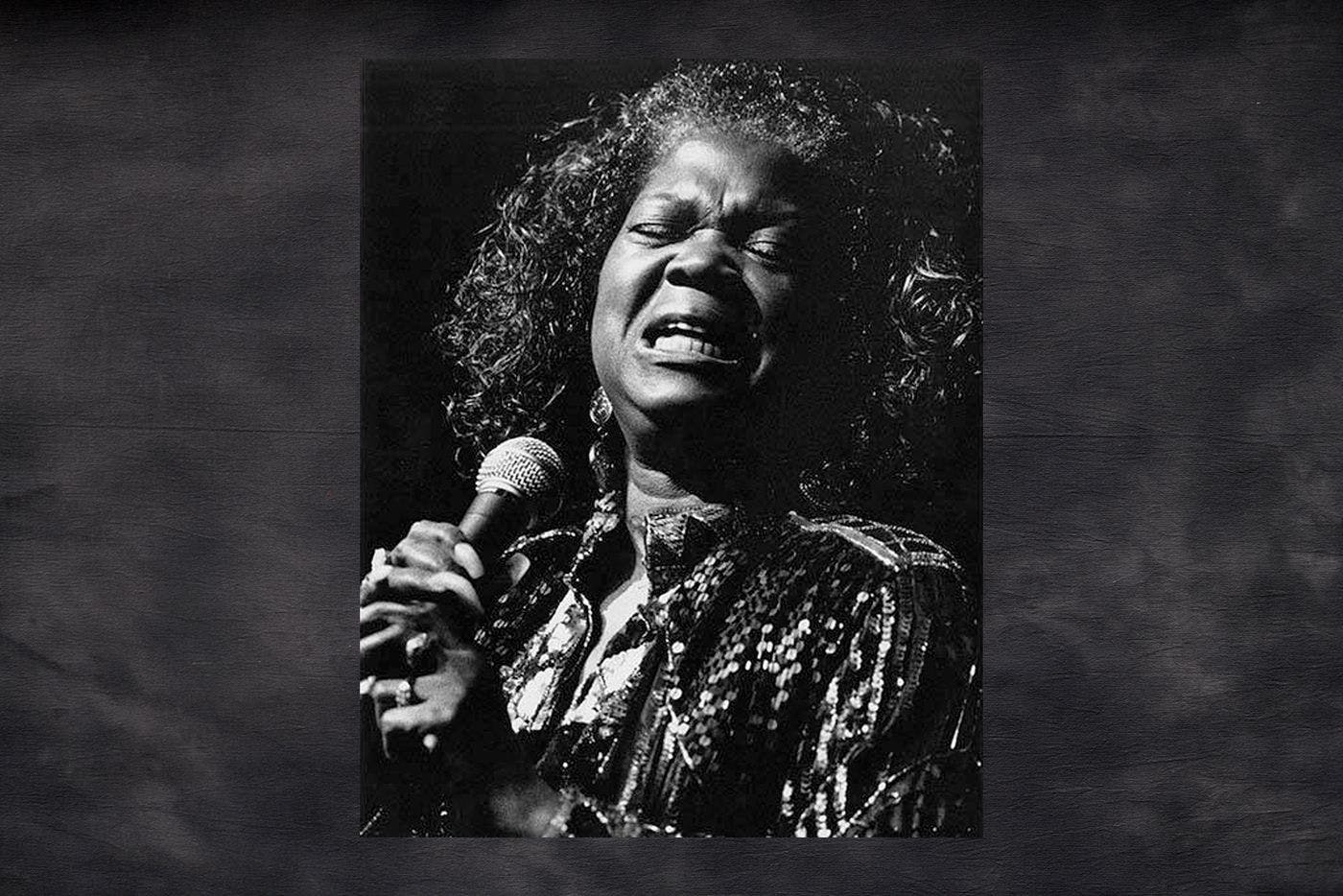
With a voice like ‘honey at dusk,’ the singer helped put Seattle’s early jazz and blues scene on the map.
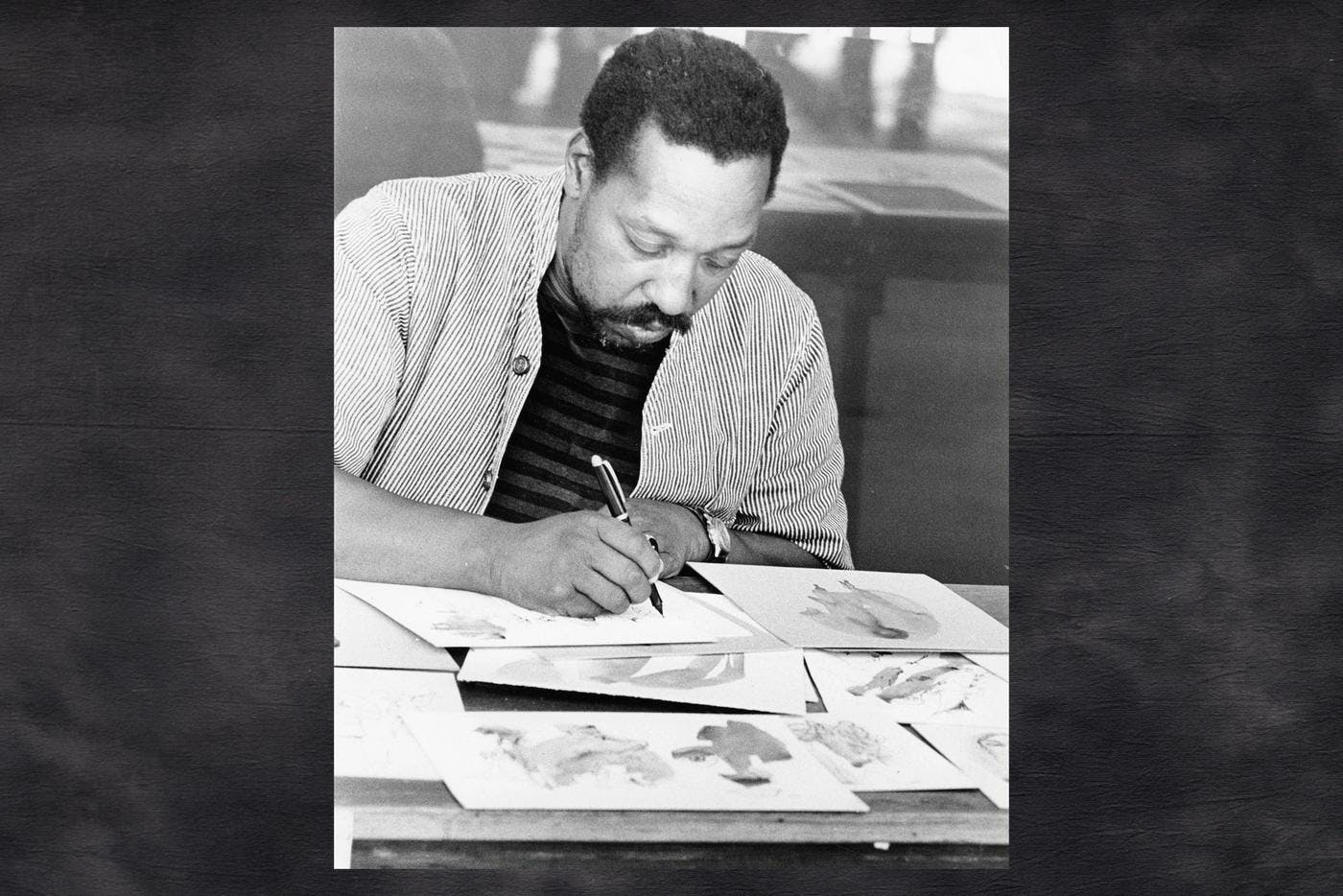
The first Black art instructor in Washington was an experimental artist ahead of his time.
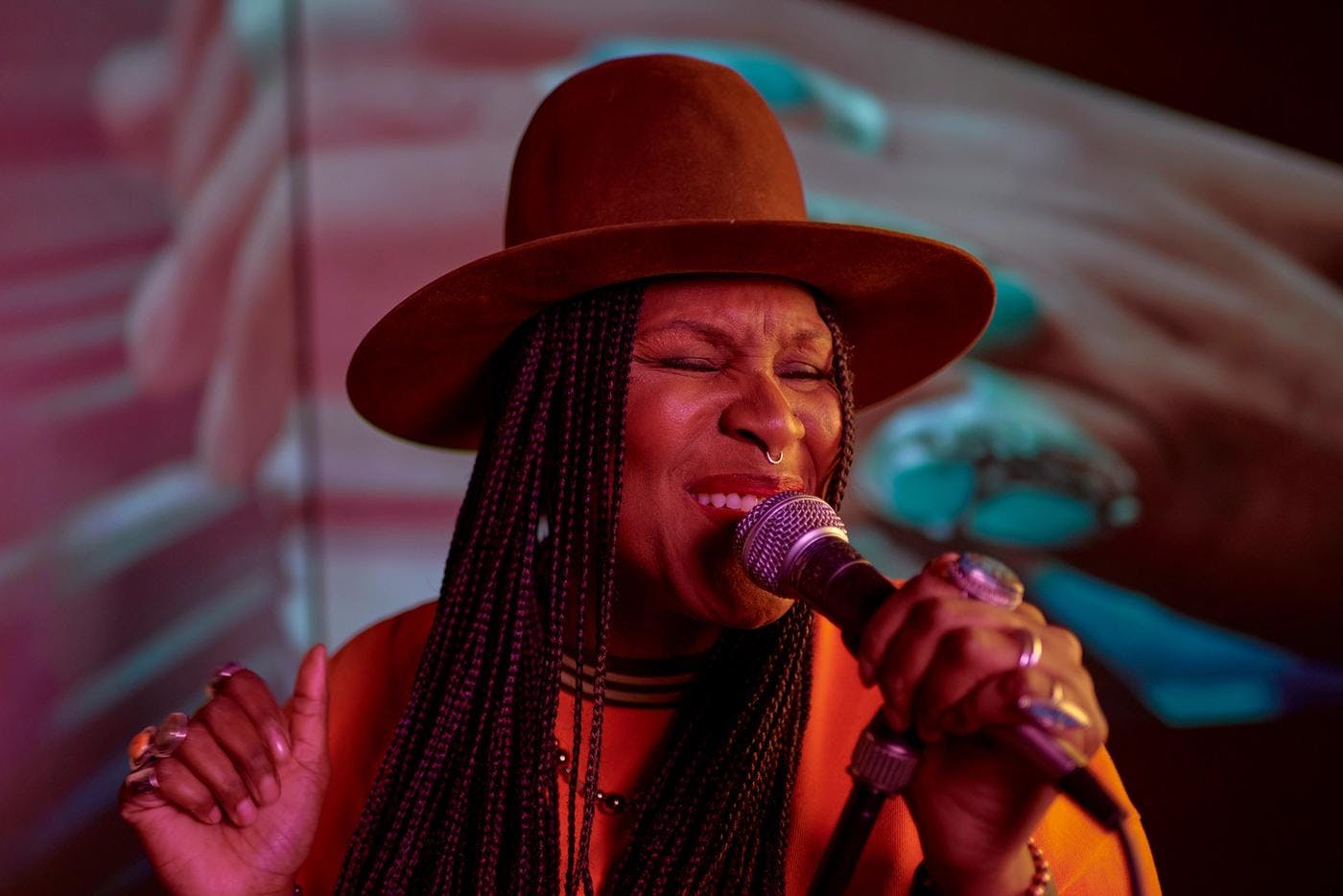
A poet at heart, this soul singer/songwriter is inspiring the next generation of Seattle musicians.

As a founder of Digable Planets and Shabazz Palaces, the Seattle rapper has pushed hip-hop to the outer limits.
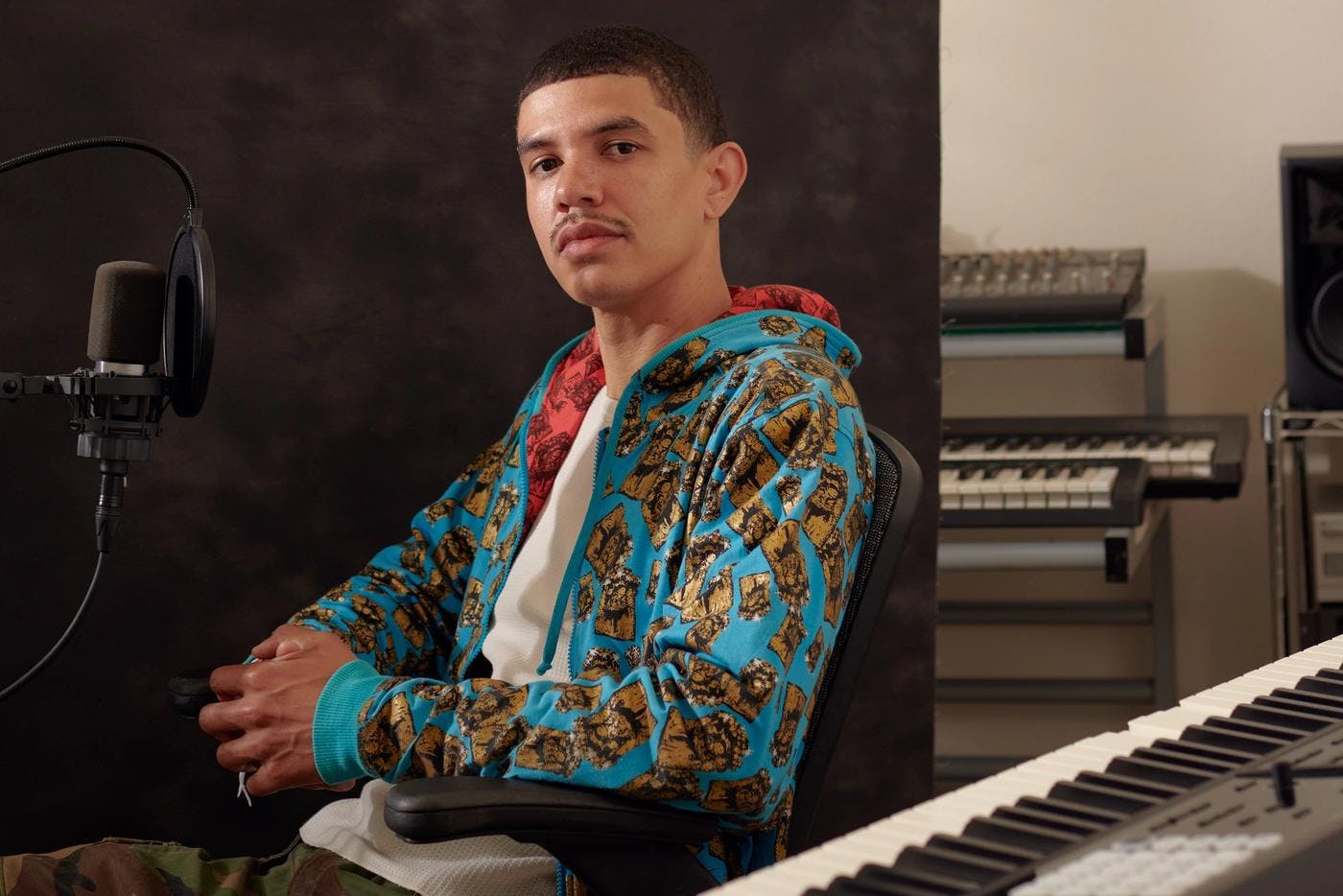
The Seattle rapper keeps his memories of the Central District alive with vivid lyrics and a jazz sensibility.
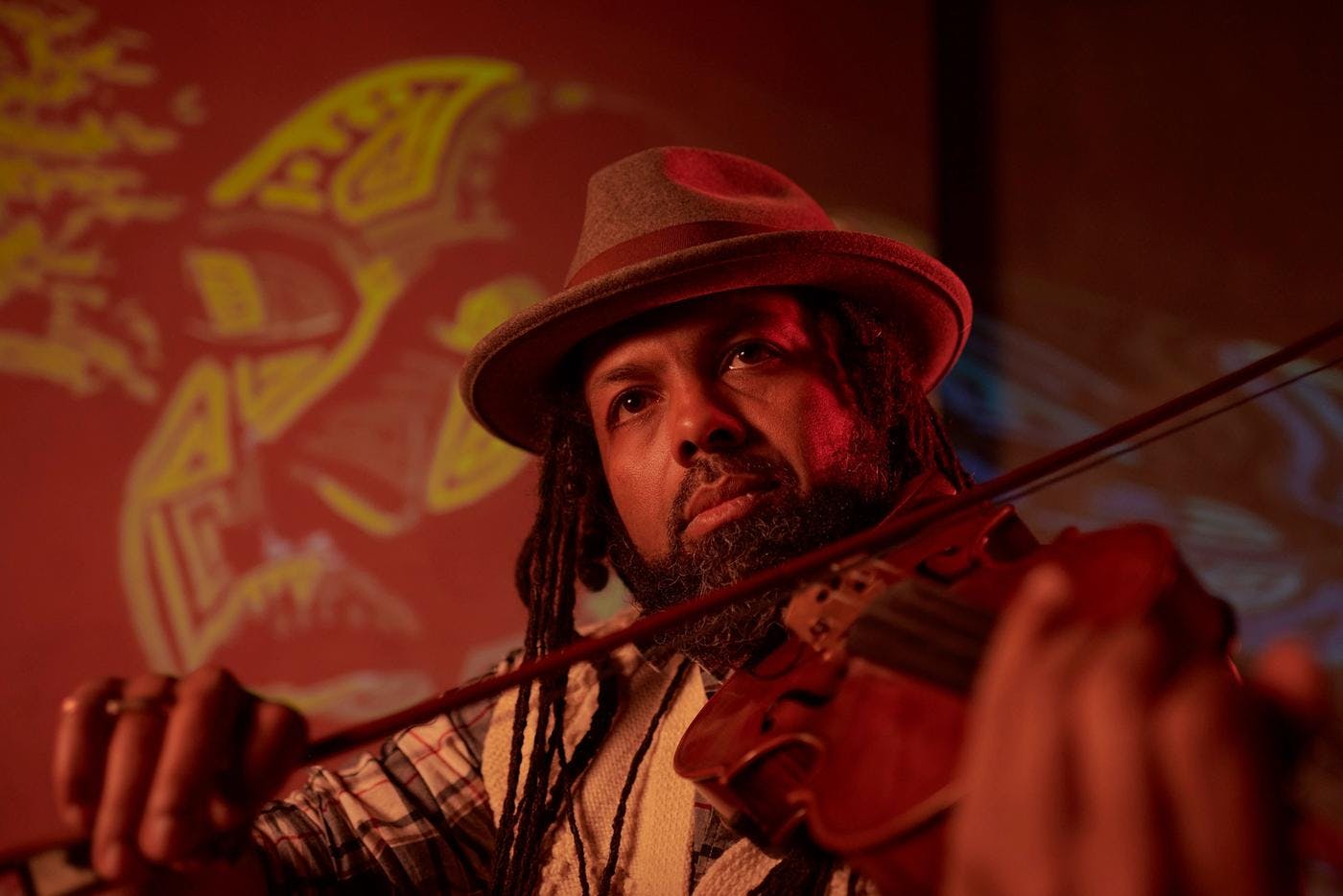
The talented multi-instrumentalist uses music to string communities together.
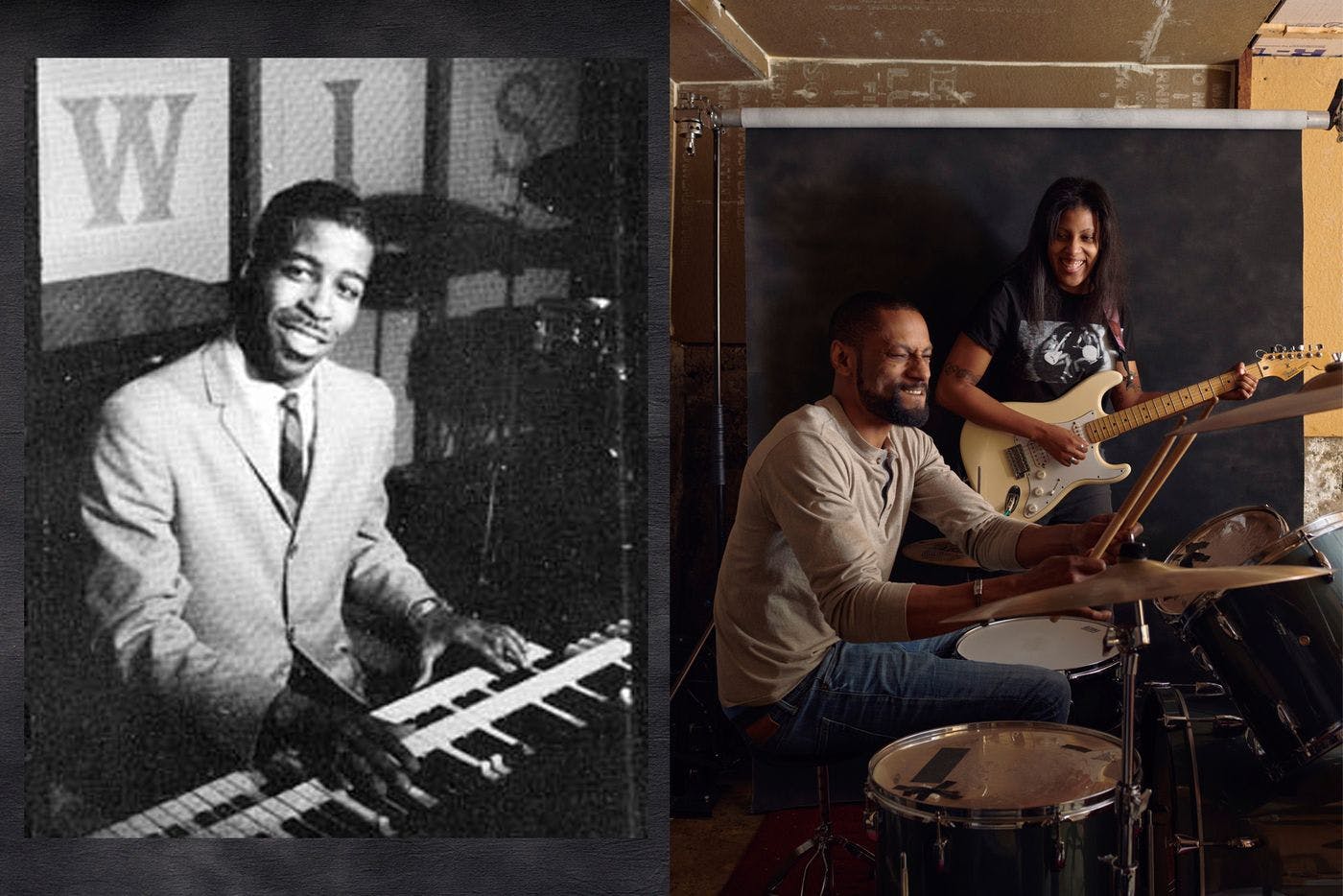
Meet a Seattle music pioneer and the band carrying the legacy of Northwest rock forward.
Thanks to our Sponsors
Your support helps Crosscut create projects like Black Arts Legacies. Learn how you can help with a one-time donation or recurring membership.
Support Crosscut